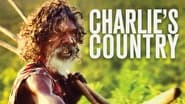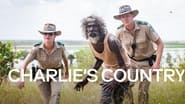Cathardincu
Surprisingly incoherent and boring
FuzzyTagz
If the ambition is to provide two hours of instantly forgettable, popcorn-munching escapism, it succeeds.
Erica Derrick
By the time the dramatic fireworks start popping off, each one feels earned.
Lucia Ayala
It's simply great fun, a winsome film and an occasionally over-the-top luxury fantasy that never flags.
nithig
I love this film. First I loved 'The Tracker' because at last the indigenous man is not a victim or worse, a joke. Now comes Charlie's Country. To Australians the very word 'country'signifies the relationship of indigenous Australians to their country. To an international audience I wish to say this: to me a sign of true art is that there are moments of transcendence. Times when it is impossible to connect rational dots any more. Life flows. Then we awaken from this willing trance and watch superb film making happening, telling a real story, not some bullshit story but real, y' know people, my people. In this Rolf de Heer & David Gulpilil have created a play of universality, the essence of being human will be recognised by any viewer especially those who have experienced how devastatingly concrete the raw use of State power is upon an individual; let alone an individual from a totally different culture, a living culture. Welcome to the new world order. And gratitude to these two men who created this film.
Oguz Halavurta
Dutch Australian film director Rolf de Heer take a look of the years running problems of Aboriginal Australians in his last movie Charlie's Country which is shown in many festivals around world. We see the problems caused by two sides from the eyes of an old and stubborn member of Aborigins, Charlie who feels like a outlander on his own lands.Charlie can't accept being assimilated or living like how white Australians impose with the help of his stubborn and shrewd character. With the stunning performance of David Gulpilil Charlie represents all his nation with his riots, outcries, falls and obedience. He makes same mistakes that his nation did but also resists to forget his roots deep in the lands. He is driven away from his village to wild, from there to the big cities and it's crowd and chaos. It takes time for him to accept that this land is same land he loves with every living on it even it has changed.Director's style resembles our Cannes awarded director Nuri Bilge Ceylan with long cuts and silent scenes. Showing same scenes in different spirits and witnessing alteration of Charlie in these scenes can be boring. And yet this style of filming helps a lot to feel the characters and their states better and deeper. Audiences feel all strugglings of all Aborigins from the eyes of Charlie.Fortunately de Heer was in theater for answering questions of us. His care to Aborigins impressed me and hearing all questions about Aborigins proved that he did really good job in his movie with making a difference for Indigenous Australians in the eyes of everyone who watched the movie. That means shooting the target you aimed. I hope it will not take centuries to solve all issues in Australia as he said.
Lee Eisenberg
Aboriginal Australian dancer David Gulpilil has appeared in a number of movies over the years: "Walkabout", "The Last Wave", "Crocodile Dundee" and "Rabbit-Proof Fence" are among his most famous roles. His performance as the titular character in Rolf de Heer's "Charlie's Country" might get remembered as his most important role. Gulpilil plays a Yolngu man living on a reservation with a collection of other Aborigines. Even though the army doesn't enter the area to mow people down, it's still impossible for the people on this reservation to live traditionally, as the police confiscate any possession deemed to be a weapon. So then Charlie decides to move out into the bush to live how he wants."Charlie's Country" will likely be the only Yolngu-language movie that you will ever see. In fact, it's the first movie that I've ever seen spoken mainly in an indigenous Australian language. The presence of words adopted from English is an ever present example of how much Australia's white population has impacted the indigenous population.The movie should serve as a reminder of how Australia's indigenous population lives. Once the island's only inhabitants, they're now 1% of the country's population (but 40% of the prison population). Unemployment and alcoholism are rampant - Charlie even mentions how the white people introduced alcohol and ganja to the Aborigines - and it was only in the last decade that Australia's government offered an official apology for stealing Aboriginal children to get raised as servants for white people. Really good movie.
Howard Schumann
Charlie (David Gulpilil), an aging Native Australian living in the Northern Territory, is broke. He does not have a house. He is also hungry and his spirits are low as a result of the erosion of his way of life. Recipient of the award for Best Actor at the 2014 Cannes Film Festival, David Gulpilil is a dominating presence in Rolf de Heer's Charlie's Country, the third film in their collaboration (The Tracker, Ten Canoes). Although much of the film is improvised, Gulpilil co-wrote the script with de Heer while he was serving a prison term. Though the film reflects the actor's personal experience, its theme of the struggle for human dignity in the face of cultural marginalization is universal.Charlie and Officer Luke (Luke Ford) have a good relationship and their banter begins the film. Charlie shouts at Luke, "You white bastards!" to which Luke yells back, "You black bastard!" The fun stops, however, when the police enforce the law preventing Charlie from hunting and fishing. They take his spear because it is considered a dangerous weapon and confiscate his gun because he does not have a weapons license. "I'm gonna shoot it, not drive it!" he tells Luke. While the police are impressed with his tracking ability, Charlie receives no compensation at all for his help in tracking drug dealers.As he sees a member of his community being flown to a hospital far from his land, he makes a decision to return to the bush, to the ways of hunting and food gathering that he knew as a boy. While his body language reflects a new freedom, there is also a deep sadness etched on his face as he realizes he can no longer cope with the physical demands of living in the bush. After a heavy rain, Charlie comes down with pneumonia and has to be airlifted to Royal Darwin Hospital, often a final destination for Aboriginal People. After he leaves the hospital on his own without being released he joins a group of homeless drifters who do nothing but drink and smoke the whole day.After an altercation with the police, Charlie is sent to prison where his hair and face are shaven, looking old beyond his years in the film's saddest moment. All Charlie has left are his memories, especially the one of dancing for the Queen at the opening of the opera house in Sydney. Though there are highs and lows in the film, what is constant is Charlie's sense of identity and his love of his native land and traditions. Though there is a message and the film does make a strong political statement, it is not a one-dimensional screed but a nuanced look at the conditions Native Australians face and their struggle to retain their values in the face of white colonization. Marked by Gulpilil's towering performance, Charlie's Country ultimately teaches us to dance to their rhythm.




